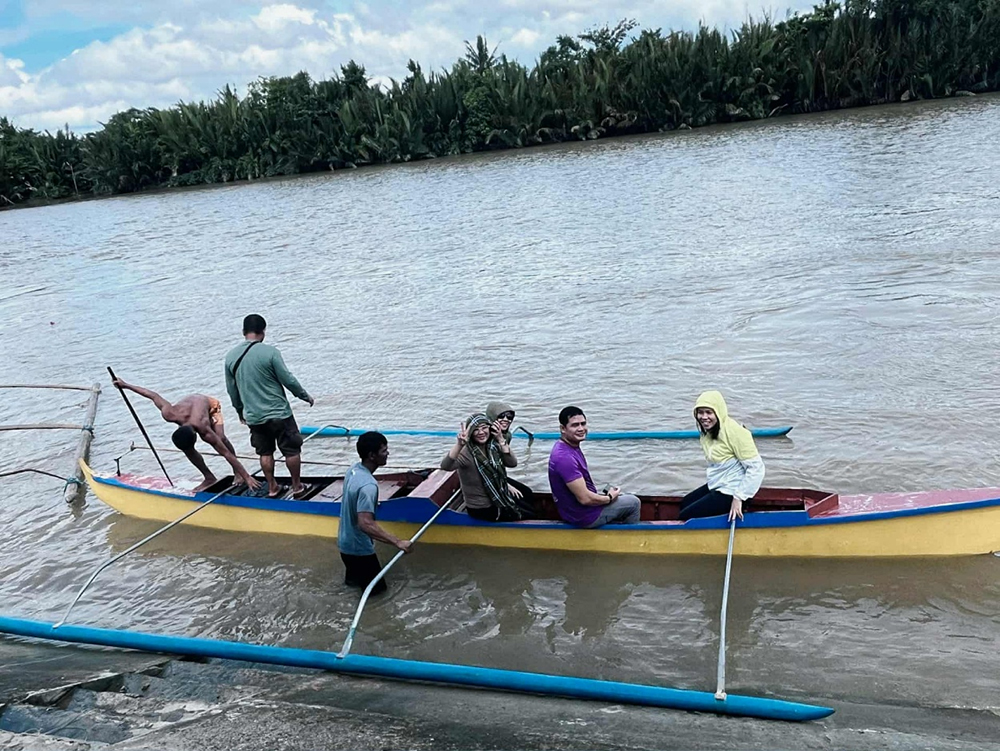By Prof. Sarex Dalida Dipol, Jr.
 The Acting Vice President for Research, Development, and Extension, together with the Dean of the College of Arts and Sciences and the faculty of the Department of Life Sciences, conducted geotagging in the adopted mangrove sites with the assistance of local fishermen.
The Acting Vice President for Research, Development, and Extension, together with the Dean of the College of Arts and Sciences and the faculty of the Department of Life Sciences, conducted geotagging in the adopted mangrove sites with the assistance of local fishermen.
On October 16, 2025 (Thursday), the Vice President for Research, Development, and Extension, together with selected faculty biologists from the College of Arts and Sciences-Department of Life Sciences, conducted geotagging and environmental scanning activities in the University’s adopted mangrove areas allocated by the provincial government. The team also made a courtesy call to the barangay local government officials to discuss this environmental conservation and protection initiative and to present a hard copy of the Memorandum of Understanding between the provincial government and the University.
Dr. Aries Roda D. Romallosa, Vice President for Research, Development, and Extension and an Agricultural and Biosystems Engineer, conducted geotagging in the mangrove areas. This process is essential for determining the precise locations of the adopted mangrove sites, serving as a reference for benchmarking, future monitoring, and reporting. It also enables the team to track changes in the area over time prior to CPU’s intervention. In the coming years, this will make it easier to assess whether significant contributions and improvements have been achieved in the area.
Meanwhile, biologists from the College of Arts and Sciences–Department of Life Sciences, namely Dr. Stella G. Fernandez, College Dean; Prof. Cherrylyn M. Macairan, Chairperson of the Department; Dr. Laureen M. Manalo; and Dr. Maricel Faguilsana-Fantonalgo, conducted an environmental scanning in the mangrove sites to identify research opportunities, potential threats, and prevailing concerns.
The adopted mangrove sites serve as the designated areas for the CPU Center for Mangroves and Marine Biodiversity Conservation, which will serve as a hub for instruction, research, development, and extension initiatives of the University. These adopted areas are located in Sitio Panuso-on in Leganes, Brgy. Dangula-an in Anilao, and Brgy. Culasi in Ajuy.
At present, Prof. Cherrylyn M. Macairan serves as the first Officer-in-Charge of the CPU Center for Mangroves and Marine Biodiversity Conservation.
